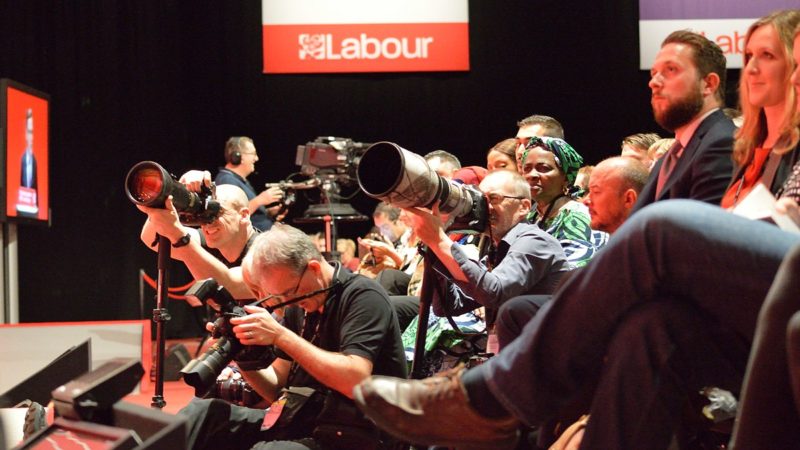If the frontbench are not prepared to follow party policy, they should go back to members.

In March 2017, Keir Starmer announced Labour’s six tests for any Brexit deal with great fanfare in a speech at Chatham House. He made a clear commitment to the six tests, saying “let me be clear: Labour will not support a deal that fails to reflect core British values and the six tests”.
The importance of the six tests was further reinforced by the Brexit motion passed by Labour Party Conference in September 2018. This stated “Labour has set six robust tests for the final Brexit deal. Conference believes Labour MPs must vote against any Tory deal failing to meet these tests in full.”
Jeremy Corbyn also said in November that “if this deal doesn’t meet our six tests and work for the whole country, then we will vote against it”. Analysis by a professor of European law for Left Foot Forward suggested the motion was close to backing membership of the European Economic Area at a minimum.
Yet recently, the six tests have largely been absent from the Labour shadow cabinet’s lexicon. This is important because one of the key six texts for a Brexit deal is: “does it deliver the “exact same benefits” as we currently have as members of the single market and customs union?”
Astonishingly, despite the very clear statement by Labour Party conference in support of the six tests, Jeremy Corbyn’s speech in the debate on Withdrawal Agreement didn’t mention the single market once. In the following Parliamentary debate, Labour tabled an amendment that the options that should be considered should include:
“Negotiating changes to the draft Withdrawal Agreement and Political Declaration so as to secure a permanent customs union with the EU, a strong relationship with the single market underpinned by shared institutions and obligations, and dynamic alignment on rights and standards”.
Now Jeremy Corbyn has written to the Prime Minister making five demands for “sensible agreement”. This does not include the test on whether the deals delivers the “exact same benefits” we currently have as members of the single market and customs union.
This is clearly a weakening of the position set out by Keir Starmer, supported by Jeremy Corbyn and unanimously agreed by Labour Party conference.
Instead of a commitment to the exact same benefits of the single market and the customs union, this is replaced with new linguistic contortions resulting in an amorphous reference to a “close alignment with the single market” and membership of “a UK-wide customs union”.
It is not clear what any of this means, not least in relation to the customs union where Labour seems to have jettisoned its commitment to members of a customers union with the EU.
This week has seen Nissan cancel its planned production of the X-Trail in Sunderland, demonstrating the reality of Brexit all too clearly. Matt Western, the MP for Warwick and Leamington, who worked in the car industry before entering Parliament, pointed out in the debate on Nissan’s decision that the car industry wants a customs union and single market deal.
Unite, which represents workers at Nissan Sunderland, also has a policy that Labour’s six tests “must” be met. This is backed up by the Society of Motor Manufacturers and Traders, which has called on the government to commit to “continued membership of the customs union and maintenance of the benefits the single market delivers”.
It is vital that Labour make its position on the single market and customs union clear, showing how we differ from the Tory approach.
Jeremy Corbyn and Keir Starmer should urgently explain why the six tests have seemingly been dumped. The shadow frontbench might argue that they are reacting to circumstances or that we are now in the “all options” scenario described by the conference motion and that this gives them free reign. However, this would be a preposterous position, as Labour members certainly would not consider the motion as giving the front bench a blank check to cave into pressure from the hard right of the Conservative Party.
If the frontbench are not prepared to follow party policy, or are unsure about what it means, then they should convene a special conference and argue for the alternative approach they would like to pursue.
We can see how effective that approach was in carving a united position that has withstood the various challenges over the last few months. Now is the time to renew our approach. Labour members are rightly proud of our commitment to internal democracy, let’s make sure we can continue to be proud of it.
Omar Salem writes in a personal capacity.
To reach hundreds of thousands of new readers we need to grow our donor base substantially.
That's why in 2024, we are seeking to generate 150 additional regular donors to support Left Foot Forward's work.
We still need another 117 people to donate to hit the target. You can help. Donate today.



